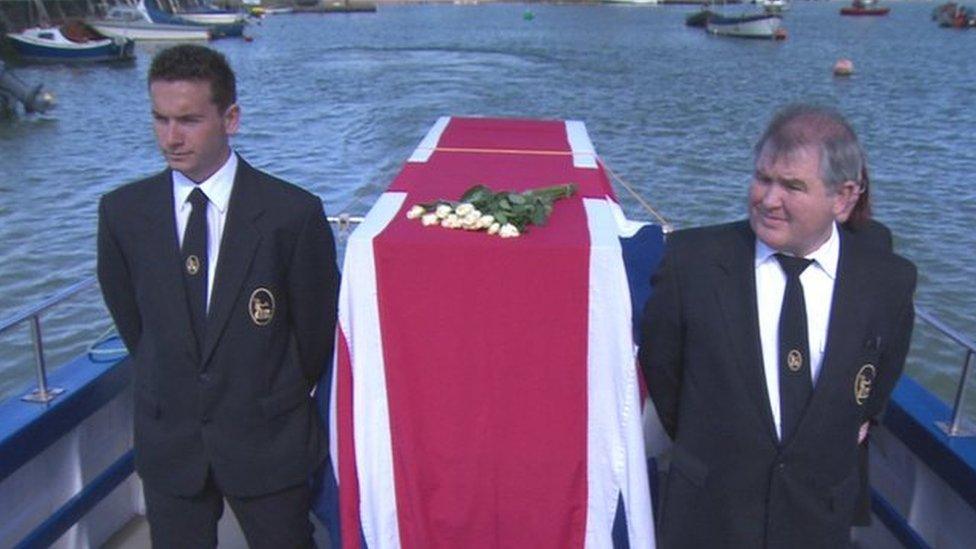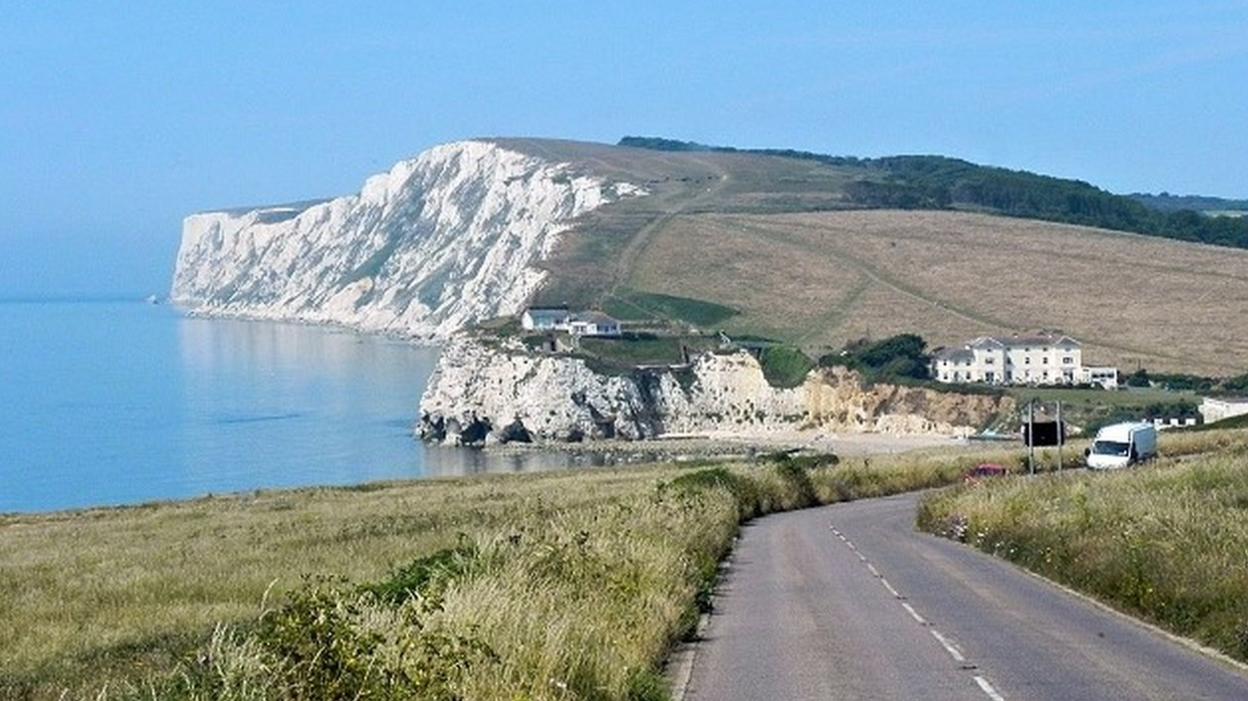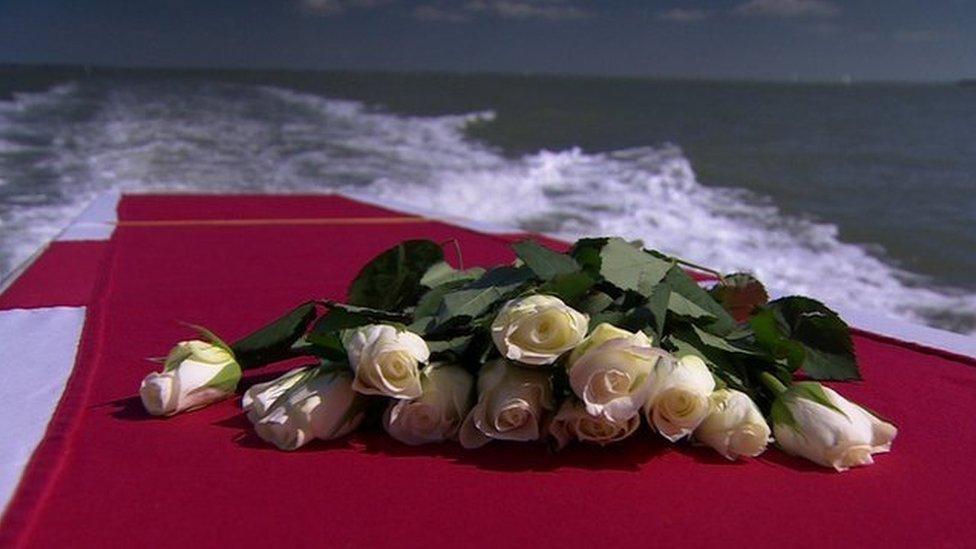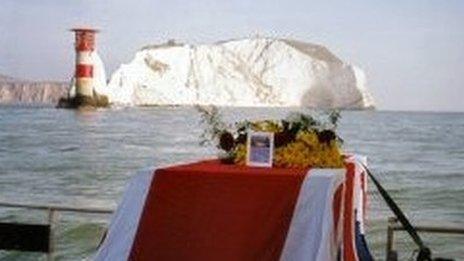Isle of Wight: Sea burial DNA tests ordered after body parts wash up
- Published

A special licence is required to arrange a sea burial
DNA samples must be taken from bodies that are to be laid to rest at one of England's sea burial sites, the government has ordered.
It follows cases over many years where body parts have washed ashore on the Isle of Wight, ministers said.
In future, remains found on the coast will be checked against DNA records.
The government said it would save the police or coroner from having to obtain DNA from bereaved relatives or mounting a suspicious death inquiry.
What happens when you are buried at sea?
The Needles, on the western side of the island, is one of three designated sea burial areas in England, together with Tynemouth, North Tyneside and the East Sussex coast.
Charles Lister, from marine funeral directors Britannia Shipping, said incidents involving body parts escaping from marine caskets were "incredibly rare".
He said: "There's a wire mesh attached to concrete. Even if a trawler smashed the casket, it wouldn't disturb anything."
There were 13 burials at sea in the three areas in 2021 and 13 in 2020, according to the Marine Management Organisation.
The DNA proposal was first put forward by former Isle of Wight Coroner John Matthews in 2006 after six bodies buried at sea washed up there over four years.
The island's current senior coroner, Caroline Sumeray, and the UK Missing Persons Unit helped to organise the change, the government said.
It added that DNA samples were not yet required for sea burials in other areas because only the Isle of Wight had an issue with body parts.
The samples will be held indefinitely on the Missing Persons Database as remains come ashore many years into the future, it added.
Hampshire and Isle of Wight Constabulary declined to comment on the change.

Follow BBC South on Facebook, external, Twitter, external, or Instagram, external. Send your story ideas to south.newsonline@bbc.co.uk, external.
- Published28 December 2016

- Published19 December 2016

- Published1 January 2014
